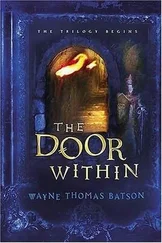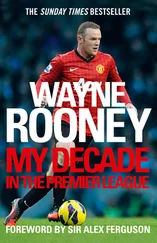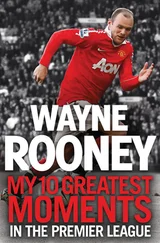I receive clothing and equipment from the reception desk and change, then go to the court and wait several minutes, but Mr. Schrub does not appear. I am glad I am about to play racquetball so I have an excuse for perspiring. To reroute my brain I challenge myself with a problem: How many racquetballs can fit inside a racquetball court?
1. The court is 20 feet wide and 20 feet high and 40 feet long, so there are 16,000 cubic feet of space for the ball to pass through. In inches, this is (16,000)(12 3).
A.I estimate the diameter of a racquetball ball is approximately 2.5 inches. If I create a box that fits 2 balls by 2 balls by 2 balls for 8 balls total, then the box is 5 inches in each direction, or 5 3= 125 cubic inches.
B.Therefore, (16,000)(12 3)/125 = number of boxes, or approximately 220,000 boxes = 1.76 million balls.
2. But boxes are an inefficient method of storage because they waste the space between the balls. So if I have a method of wasting zero space and packing the court 100 % with racquetballs, I would use this equation:
A.(16,000)(12 3)/the volume of a sphere. The volume of a sphere is (4/3)(  r 3), or in this case (4/3)(
r 3), or in this case (4/3)(  )(1.25 3), or approximately 8.3 repeating cubic inches.
)(1.25 3), or approximately 8.3 repeating cubic inches.
B.Therefore, (16,000)(12 3)/8.3 repeating = approximately 3.5 million balls.
3. So, by packing them in boxes we can fit in approximately only half as many balls as we could in an ideal scenario in which the balls waste no space between them. But the ideal cannot exist, because then they would not truly be balls anymore.
4. The compromise between the box scenario and the ideal scenario is what supermarkets do with spherical fruits, which is a best-practice method of stacking them in pyramids, and this is another reason I value pyramids. In fact, this pattern is also the way some crystals align themselves under pressure, which is why diamonds are so sharp, because high pressure forces carbon atoms to align in the most compressed pattern possible: a regular, repeating structure. Most people think diamonds are beautiful because they mirror light, but I prefer to think of them this way, which is also one of the ways I think of Zahira and her name, because her brain’s connections are so sharp.
But I do not have time to evaluate the supermarket approach because the door opens behind me and Mr. Schrub appears. He is wearing white shorts and a white shirt with a collar that are parallel to mine, except his look higher quality.
We hit to each other, and I strike slowly at first, because I am uncertain how skilled he is and do not want to look like I am showing off, although I also do not want to look like I am a poor player. But he is better than I anticipated, so I hit harder, and after a few minutes we launch a game.
He lets me serve first. I know from the warm-up that I can defeat him if I want to, but I decide to win the first game, then lose the second game, then lose the last game in a close match. Typically this outcome pleases competitors I should lose to in Doha, and I think the same will happen with Mr. Schrub. I am not truly invested in the outcome of a match, but I merely enjoy playing it, although it is more fun when I can play my hardest and challenge my own limits.
I win the first game 15–9, but I intentionally let him score a few points. I am not a skilled liar with words, but it is easier with actions. He smiles and says, “Good game.”
When the score is 13–10 in my favor for the second game, I plan to lose the point on my serve so that I am not in danger of serving again on match point, but I accidentally win it when Mr. Schrub can’t return a ball I hit. “Avoidable hinder,” I call on myself.
“Nonsense,” Mr. Schrub says.
“I obstructed your path,” I say. “It is your serve.”
He waves his racquet like he is negating the idea. “Your point, fair and square. I’m just slow and old.”
Now I am nervous again, because if I win another point on my serve I will defeat him. But if I hit a very poor serve or shot, he might detect that I am trying to lose. So I decide I have to aim precisely and miss a shot by only a few inches.
I serve, and we rally for a few shots and Mr. Schrub continues hitting hard. I am surprised he does not play more cautiously, as people often do if they are afraid of losing. But that is how you must be in business as well: Reject fear and take calculated risks. On my fourth shot I swing very hard and aim at the base of the wall, but I aim to hit the floor just before the wall so Mr. Schrub wins the point, and it is almost as if, before I strike it, I can observe the ray that links my racquet and the ball to my target.
Fortunately my mathematical brain makes me very skilled at racquetball.
He takes the ball for his serve and does not say anything, and I let him win the next five points, although I make it appear close. “Good game,” he says again, although this time he does not smile. “Tiebreaker to 11.”
I take an early lead but allow him to reduce the margin of deficit. When it is 8–8, Mr. Schrub says, “Looks like your program’s better than your backhand,” which is not very good sportsmanship, but I smile slightly and let him win the point when I hit a weak forehand that he smashes.
Before he serves, he says, “You can’t win with a pussy-willow shot like that.” I win the point, and then win a point on my serve to make it 9–9. Then I let him win two points in a row so that he serves for the match at 10–9.
“I can’t believe you’re about to lose to a guy two and a half times your age,” he says. I was able to ignore his previous insult, but I dislike when anyone predicts that I am going to fail at something. In addition, he would be 2.5 times my age only if he were one year older.
He serves, and I win the point with a strong backhand that he cannot return.
I make it 10–10, and now I have match point, although I still plan to lose this point and let him win on his serve. “C’mon, Karim,” he says. “You gonna choke now? You wanna run home to Mommy?”
I squeeze the racquet hard, which slightly pains my hand. “Is that it? You’re a mama’s boy?” he says.
He returns my serve, and I play a strong point and he mirrors my skill, but soon he makes an error and hits a floating shot, and I leverage the situation by jumping up and swinging my hardest on a smash and even yelling, which I never do.
Mr. Schrub watches the ball go past him. He smiles the widest this time and shakes my hand. “Thank God,” he says. “For a second there I was afraid you were actually going to let me win.”
I do not know what to say. “It’s okay, Karim,” he says, and puts his hand on my shoulder. “I’ve had plenty of people lose on purpose to me. I’ll take an honest, hard-fought loss over a fraudulent win any day. I can tell you’re a real player. A competitor.”
He invites me to recuperate with him in the sauna. We relax in the hydrated heat and do not say anything for a few minutes except when Mr. Schrub makes sounds because his body pains him. “Ah, I’m mature,” he says. “That’s what my wife calls me — a ‘mature man.’ I don’t know how many more years I have in me to do this.”
At first I think he is talking about racquetball, but then I realize he means work. It surprises me, because he is only 64, and many people in business work at least a decade more than that, but also he could have easily retired a long time ago, so the solitary reason to continue working is because the challenges still motivate him, as they do for me.
Читать дальше

 r 3), or in this case (4/3)(
r 3), or in this case (4/3)( 










